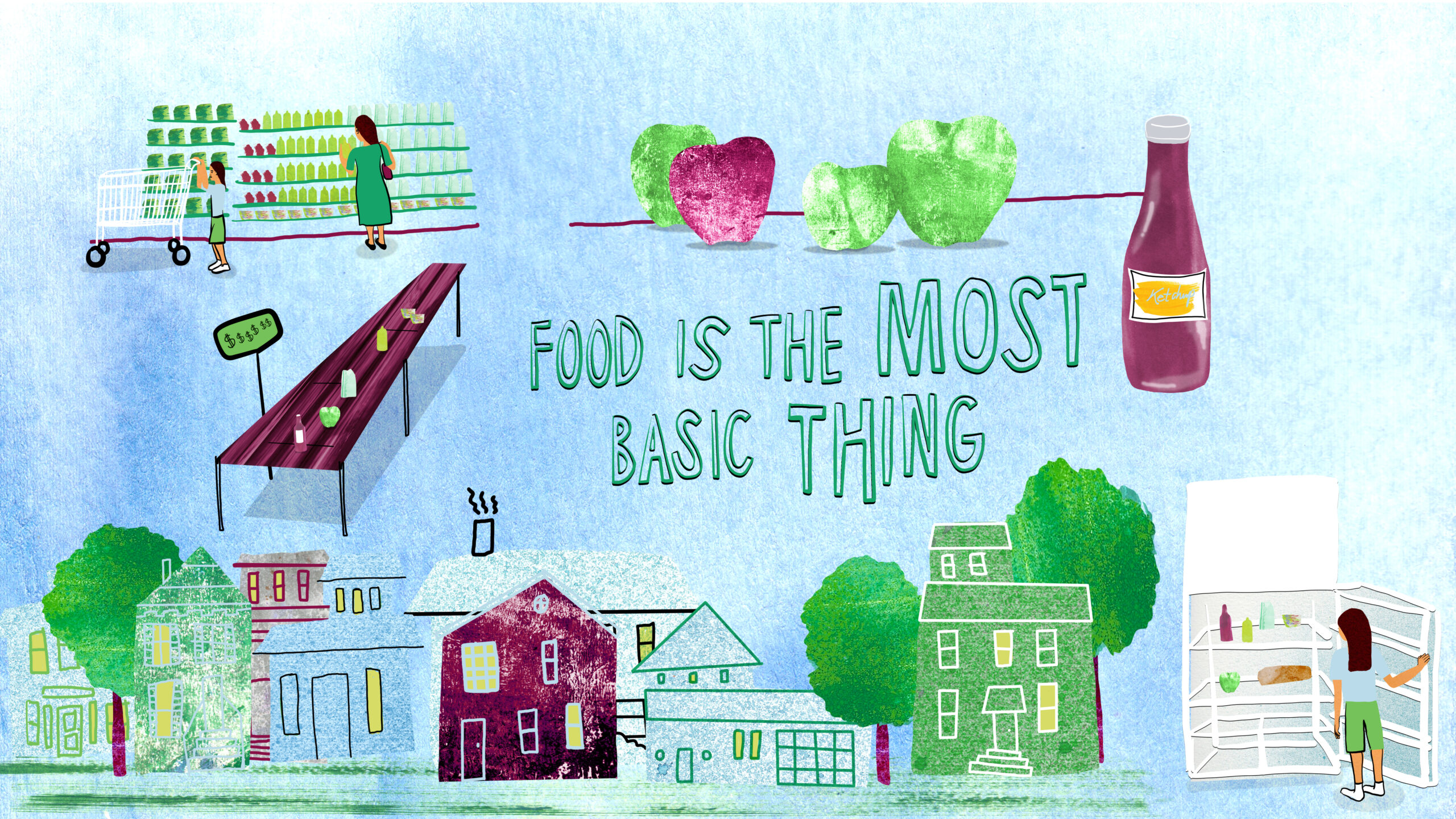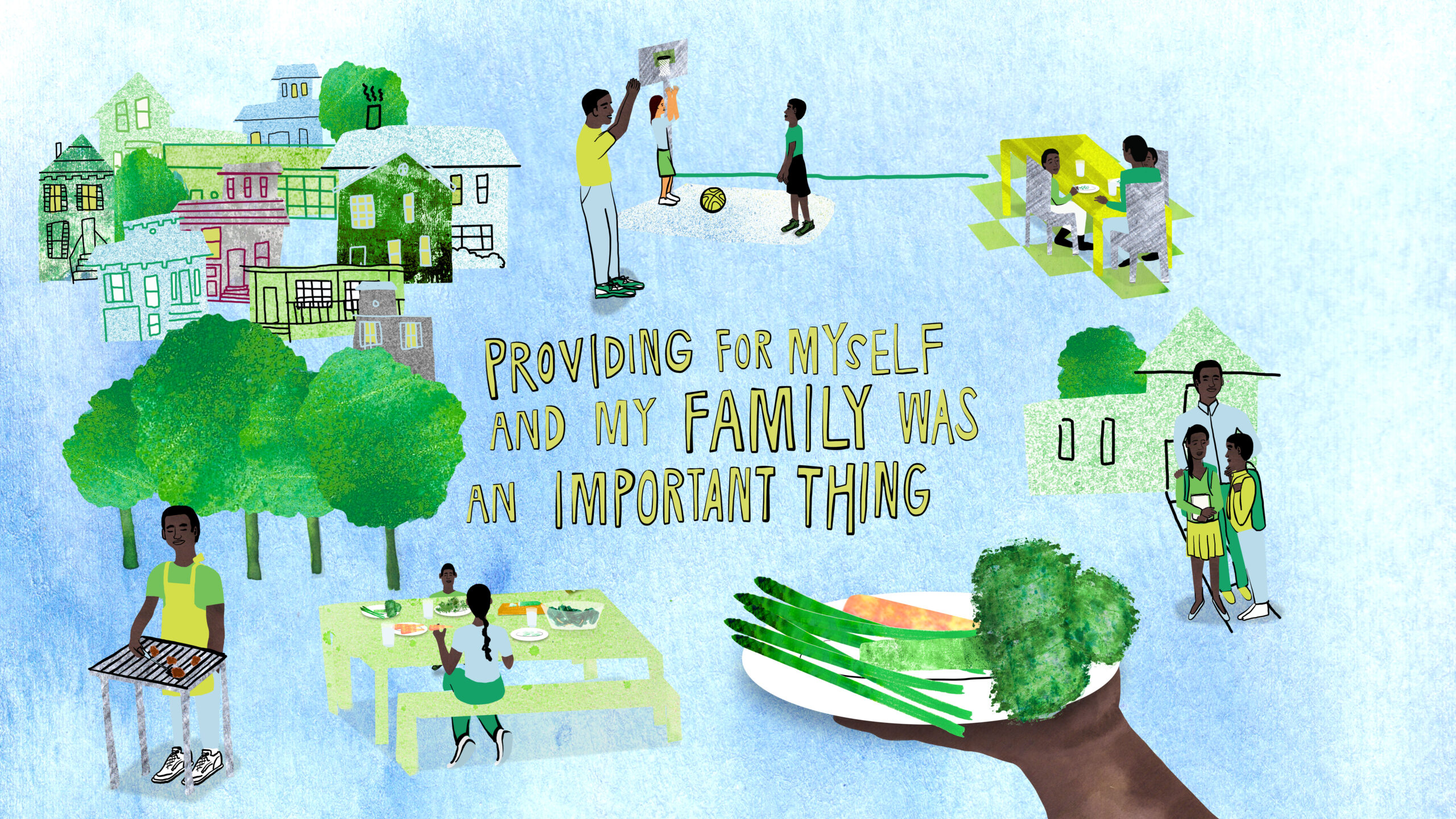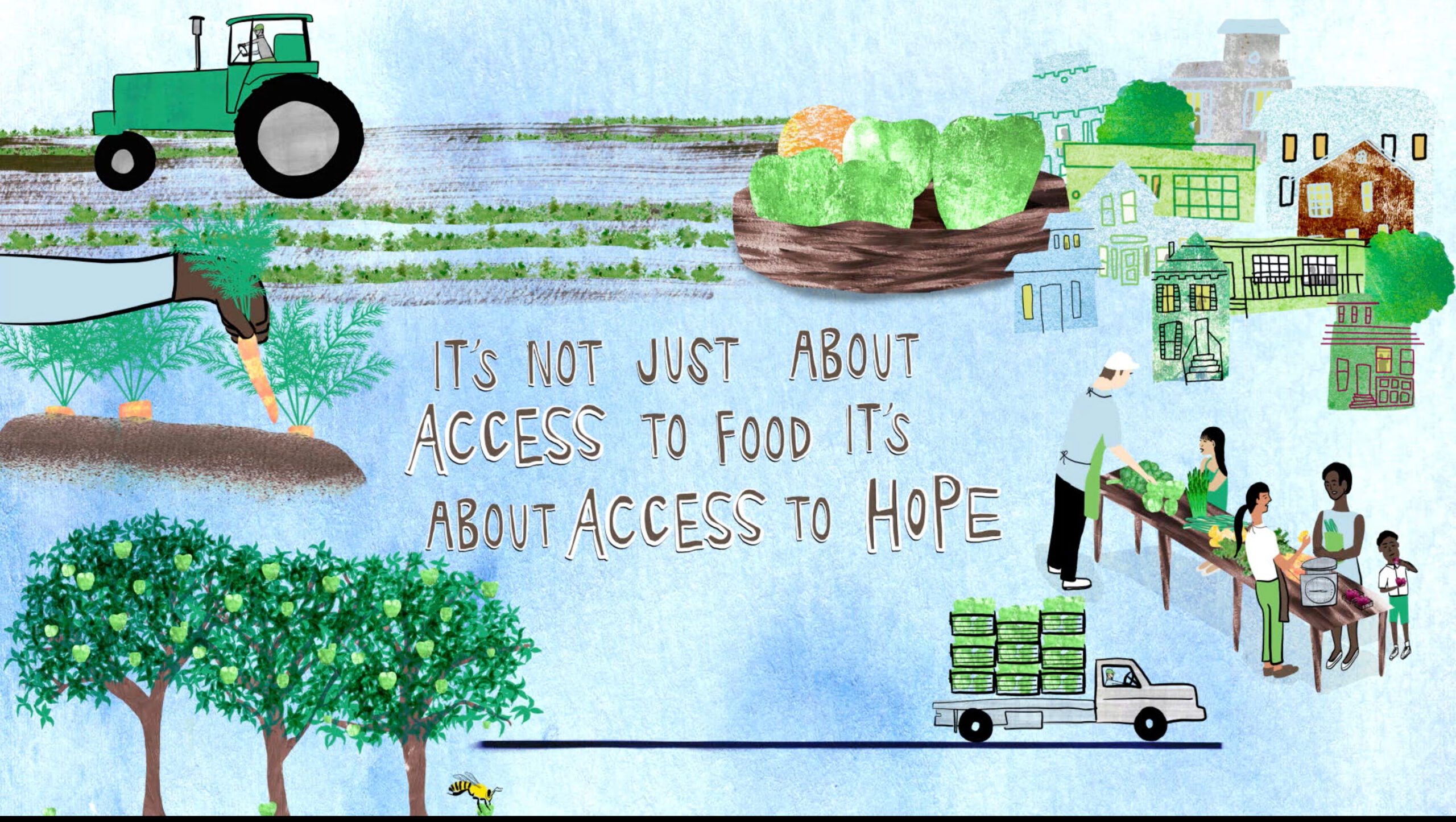Get Fresh News in Your Inbox
Sign up for our e-newsletter to see what's possible when we start with food.
Every year, organizations from over 150 countries come together to raise awareness of hunger and food insecurity on World Food Day. We’re joining this important recognition day to elevate the power food can play toward a fairer future — one where each of us has access to healthy food, economic opportunities, and a planet that can sustain us all.
For many individuals and families, food, especially healthy food, is out of reach. In the United States, families who are economically disadvantaged spend more than a third of their disposable income on food. As of April 2023, 41.9 million people in 22.2 million households across the country rely on SNAP (formerly known as food stamps) to put food on their table — that’s about 12.5% of ALL Americans (PEW Research Center).
This World Food Day, we’re elevating a few stories of Americans who use SNAP to feed themselves and their families. We invite you to spend a few minutes with Eleanor and Tabatha, Anthony and Jesse, and Adam and Jeremy, as they share their experiences using SNAP.
The following videos were created in partnership with StoryCorps and the Robert Wood Johnson Foundation and brought to life by an independent artist.

Eleanor and Tabatha both grew up in households that used SNAP. From a young age, they learned to shop on a tight budget, helped their mom out while she worked multiple jobs, and ate what they could find in the cupboard.

Anthony and Jesse overcame the stigma surrounding food assistance in order to provide for their families.

Jeremy and Adam are two veterans-turned-farmers who offer SNAP and Double Up to both feed their community and support their livelihoods.
By increasing the purchasing power of SNAP to help people bring home more fruits and vegetables, nutrition incentive programs are a proven solution to expand healthy food choices for families and spark economic opportunity for farmers and food retailers.
For the second consecutive year, findings from the Nutrition Incentive Hub, led by our partners at Center for Nutrition and Health Impact, show that those who participate in nutrition incentive programs eat more fruits and vegetables than the average American. And individuals’ food security showed significant improvement through participation in these programs.
From our signature Double Up Food Bucks program, to our work leading technical assistance for the Nutrition Incentive Hub, and our policy advocacy efforts to help bring these proven solutions to scale, explore how we’re building and supporting nutrition incentive programs and the impact being made in our home state of Michigan and across the country.
At Fair Food Network, we’re working toward a fairer future—one where each of us has access to healthy food, economic opportunities, and a planet that can sustain us all. Will you join us?